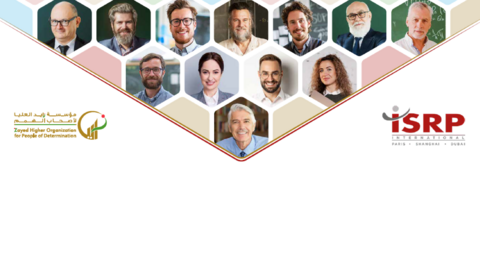Membres
Presentation of PMT and ISRP in view of a second training session in collaboration with ZHO

Exploring Psychomotor Therapy (PMT)
Psychomotor Therapy (PMT) is an innovative rehabilitation method that originated in France during the early 1950s. It was developed by Giselle Soubiran, a French physical therapist, at the Henri Roussel Sainte-Anne Children’s Psychiatry Hospital in Paris. Collaborating with child psychiatrist Julian de Ajuriaguerra, Soubiran believed in the transformative potential of uniting the body and the mind through specialized rehabilitation techniques.
Drawing inspiration from the concept of “psychomotricity,” which appeared in German literature as early as the 1850s but had never been applied clinically, Soubiran conducted extensive studies on children with high IQs who struggled with learning. Her groundbreaking research led to the first definition of psychomotor disorders, a set of evaluation tools, and rehabilitation techniques designed to enhance psychomotor skills. These findings were published in 1960.
The Birth of ISRP: A Global Leader in PMT
In 1967, Giselle Soubiran, alongside her son José, established the Higher Institute for Psychomotor Therapy (ISRP) in France to formalize PMT training. With the support of the French Ministry of Health, PMT gained national recognition in 1974 with the creation of the State Degree of Psychomotor Therapist, a three-year higher education program. In 1988, a competency decree was enacted to protect the practice of licensed psychomotor therapists, further solidifying the profession.
Today, ISRP is the largest and most influential institution in the field of PMT, with four campuses across France—Paris, Marseille, Vichy, and Metz—and over 1,500 students trained annually. ISRP has also played a pivotal role in spreading PMT internationally through partnerships, such as the creation of the International Organization for Psychomotor Therapy and Relaxation (OIPR) in 1979.
Global Impact and Expansion
PMT is now practiced in over 40 countries and continues to grow. Its applications extend across diverse areas of healthcare, including:
- Premature infant care
- Neurodevelopmental disorders: Learning disorders, Autism Spectrum Disorder (ASD), ADHD (including prevention and early detection)
- Cerebral Palsy
- Mental health: Addressing anxiety, depression, PTSD, eating disorders, addiction, and more
- Neurological conditions: Stroke, brain and spinal trauma, and neurodegenerative disorders such as Alzheimer’s and Parkinson’s disease
- Geriatric care: Preventing and managing age-related neurodegenerative conditions
Since 2015, ISRP has expanded its reach globally, starting with a branch in Shanghai, China. This initiative has trained over 5,000 healthcare professionals and forged partnerships with prestigious institutions, including the Beijing University 6th Hospital and Shanghai Mental Health Center. ISRP has also supported healthcare modernization efforts in Uzbekistan and Kazakhstan, collaborating with governments and healthcare organizations to develop PMT.
Collaboration Between ISRP and ZHO
ISRP and Zayed Higher Organization for People of Determination (ZHO) have partnered to introduce PMT training in the UAE. The first training session took place during the 2024 Rehabilitation International World Congress in Abu Dhabi, focusing on PMT applications for Autism Spectrum Disorder (ASD).
Building on this success, the next training session will be held from January 31st to February 5th, 2025. This six-day program will explore the neurological and psychomotor systems, offering foundational tools for ASD evaluation and therapy. A follow-up session later in 2025 will deepen participants' expertise in psychomotor rehabilitation for children with ASD.
Training Details
- Dates: January 31–February 5, 2025
- Location: ZHO Headquarters, Abu Dhabi, UAE
- Cost: AED 3,500 per participant (50% discount for ZHO staff)
- Language: English (with Arabic translations for technical terms if needed)
- Participants: Limited to 30 healthcare professionals working with ASD patients
- Accreditation: DOH CME hours (35 hours, pending confirmation)
This collaboration highlights ISRP's commitment to advancing PMT and improving care for individuals with ASD. For more information or to secure your spot, visit our website or contact us directly.



